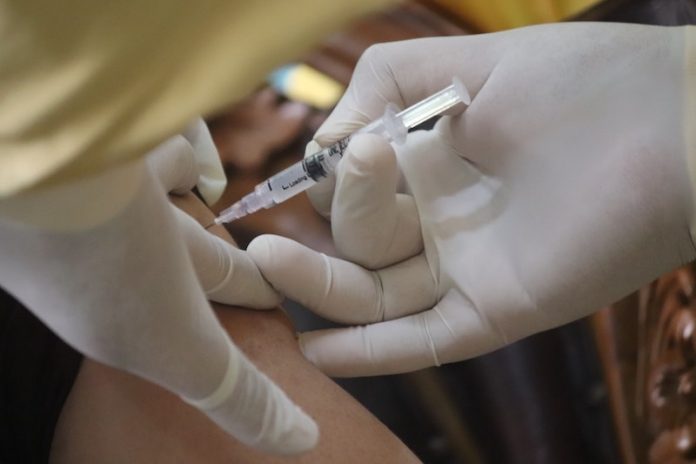
People with rheumatic diseases or inflammatory diseases of the intestine (Crohn’s disease, ulcerative colitis) and skin (psoriasis) are often treated with medicinal substances that suppress the immune system.
These immunosuppressive treatments can prevent flares of the disease but may also reduce the success of COVID vaccination.
In a new study from Kiel University, researchers found that the new mRNA vaccines against COVID-19 are effective and well-tolerated for people with chronic inflammatory diseases and undergoing immunosuppressive therapy.
In order to gauge the long-term vaccine response, 23 patients undergoing immunosuppressive therapy were re-examined six months after the second vaccination.
In some of them, antibody levels against SARS-CoV-2 had fallen sharply.
The team found that the 13 patients treated with TNF alpha blockers had significantly lower antibody levels than healthy people.
This does not necessarily mean that individuals treated with TNF alpha blockers would no longer have protection against infection with the coronavirus.
Because it’s not only the antibodies specifically targeted against the virus which protect against infection but also specialized immune cells.
The team says this cellular vaccine response remains virtually unchanged in patients treated with TNF alpha-blockers after six months. Some protection probably remains, but compared to other people, it will be slightly worse.
After six months, the patients certainly need a booster vaccination, but it would probably be a good idea to give them a booster earlier.
The most noticeable difference between the individuals treated with TNF alpha-blockers and the other groups was observed in the concentrations of neutralizing antibodies.
Neutralizing antibodies bind to a virus particle in a very special way, and prevent the virus from infecting a cell.
There is still no threshold value determined for the concentration of neutralizing antibodies which is required for immune protection.
Results from breakthrough infections indicate that decreasing levels of neutralizing antibodies correlate with decreasing protection against SARS-CoV-2.
The team says the rapid decrease in antibody levels observed in connection with TNF blocker treatment in the Kiel study should be considered in the planning of booster vaccinations.
And in principle, this problem could also occur with other vaccinations.
If you care about Covid, please read studies about what you need to know about Vitamin D and COVID-19, and findings of the key to suppressing COVID-19.
For more information about the pandemic, please see recent studies about the drug that is effective in treating severe COVID-19, and results showing that green tea may offer new hope to beat COVID-19.
The study is published in RMD Open. One author of the study is Bimba F. Hoyer.
Copyright © 2021 Knowridge Science Report. All rights reserved.



